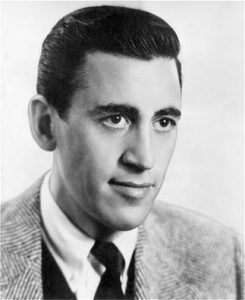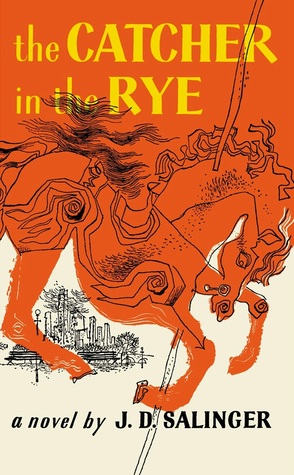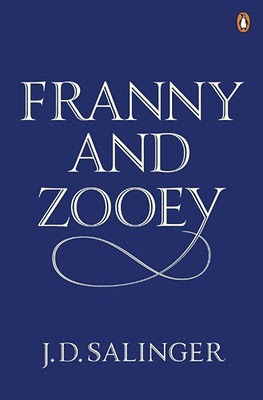 Jerome David Salinger was an American author, best known for his 1951 novel The Catcher in the Rye, as well as his reclusive nature. His last original published work was in 1965; he gave his last interview in 1980. Raised in Manhattan, Salinger began writing short stories while in secondary school, and published several stories in the early 1940s before serving in World War II. In 1948 he published the critically acclaimed story “A Perfect Day for Bananafish” in The New Yorker magazine, which became home to much of his subsequent work. In 1951 Salinger released his novel The Catcher in the Rye, an immediate popular success. His depiction of adolescent alienation and loss of innocence in the protagonist Holden Caulfield was influential, especially among adolescent readers. The novel remains widely read and controversial, selling around 250,000 copies a year.
Jerome David Salinger was an American author, best known for his 1951 novel The Catcher in the Rye, as well as his reclusive nature. His last original published work was in 1965; he gave his last interview in 1980. Raised in Manhattan, Salinger began writing short stories while in secondary school, and published several stories in the early 1940s before serving in World War II. In 1948 he published the critically acclaimed story “A Perfect Day for Bananafish” in The New Yorker magazine, which became home to much of his subsequent work. In 1951 Salinger released his novel The Catcher in the Rye, an immediate popular success. His depiction of adolescent alienation and loss of innocence in the protagonist Holden Caulfield was influential, especially among adolescent readers. The novel remains widely read and controversial, selling around 250,000 copies a year.
The success of The Catcher in the Rye led to public attention and scrutiny: Salinger became reclusive, publishing new work less frequently. He followed Catcher with a short story collection, Nine Stories (1953), a collection of a novella and a short story, Franny and Zooey(1961), and a collection of two novellas, Raise High the Roof Beam, Carpenters and Seymour: An Introduction (1963). His last published work, a novella entitled “Hapworth 16, 1924”, appeared in The New Yorker on June 19, 1965.
Afterward, Salinger struggled with unwanted attention, including a legal battle in the 1980s with biographer Ian Hamilton and the release in the late 1990s of memoirs written by two people close to him: Joyce Maynard, an ex-lover; and Margaret Salinger, his daughter. In 1996, a small publisher announced a deal with Salinger to publish “Hapworth 16, 1924” in book form, but amid the ensuing publicity, the release was indefinitely delayed. He made headlines around the globe in June 2009, after filing a lawsuit against another writer for copyright infringement resulting from that writer’s use of one of Salinger’s characters from The Catcher in the Rye. Salinger died of natural causes on January 27, 2010, at his home in Cornish, New Hampshire.
Books

The Catcher in the Rye
The hero-narrator of The Catcher in the Rye is an ancient child of sixteen, a native New Yorker named Holden Caulfield. Through circumstances that tend to preclude adult, secondhand description, he leaves his prep school in Pennsylvania and goes underground in New York City for three days. The boy himself is at once too simple and too complex for us to make any final comment about him or his story. Perhaps the safest thing we can say about Holden is that he was born in the world not just strongly attracted to beauty but, almost, hopelessly impaled on it. There are many voices in this novel: children’s voices, adult voices, underground voices-but Holden’s voice is the most eloquent of all. Transcending his own vernacular, yet remaining marvelously faithful to it, he issues a perfectly articulated cry of mixed pain and pleasure. However, like most lovers and clowns and poets of the higher orders, he keeps most of the pain to, and for, himself. The pleasure he gives away, or sets aside, with all his heart. It is there for the reader who can handle it to keep.
J.D. Salinger’s classic novel of teenage angst and rebellion was first published in 1951. The novel was included on Time’s 2005 list of the 100 best English-language novels written since 1923. It was named by Modern Library and its readers as one of the 100 best English-language novels of the 20th century. It has been frequently challenged in the court for its liberal use of profanity and portrayal of sexuality and in the 1950’s and 60’s it was the novel that every teenage boy wants to read.

Franny and Zooey
The short story, Franny, takes place in an unnamed college town and tells the tale of an undergraduate who is becoming disenchanted with the selfishness and inauthenticity she perceives all around her.
The novella, Zooey, is named for Zooey Glass, the second-youngest member of the Glass family. As his younger sister, Franny, suffers a spiritual and existential breakdown in her parents’ Manhattan living room — leaving Bessie, her mother, deeply concerned — Zooey comes to her aid, offering what he thinks is brotherly love, understanding, and words of sage advice.
Salinger writes of these works: “FRANNY came out in The New Yorker in 1955, and was swiftly followed, in 1957 by ZOOEY. Both stories are early, critical entries in a narrative series I’m doing about a family of settlers in twentieth-century New York, the Glasses. It is a long-term project, patently an ambiguous one, and there is a real-enough danger, I suppose that sooner or later I’ll bog down, perhaps disappear entirely, in my own methods, locutions, and mannerisms. On the whole, though, I’m very hopeful. I love working on these Glass stories, I’ve been waiting for them most of my life, and I think I have fairly decent, monomaniacal plans to finish them with due care and all-available skill.”
I’m sick of not having the courage to be an absolute nobody.
I’m sick of just liking people. I wish to God I could meet somebody I could respect.
Mothers are all slightly insane.
What really knocks me out is a book that, when you’re all done reading it, you wish the author that wrote it was a terrific friend of yours and you could call him up on the phone whenever you felt like it. That doesn’t happen much, though.
I am always saying “Glad to’ve met you” to somebody I’m not at all glad I met. If you want to stay alive, you have to say that stuff, though.
The mark of the immature man is that he wants to die nobly for a cause, while the mark of the mature man is that he wants to live humbly for one.
Don’t ever tell anybody anything. If you do, you start missing everybody.
I’m quite illiterate, but I read a lot.

